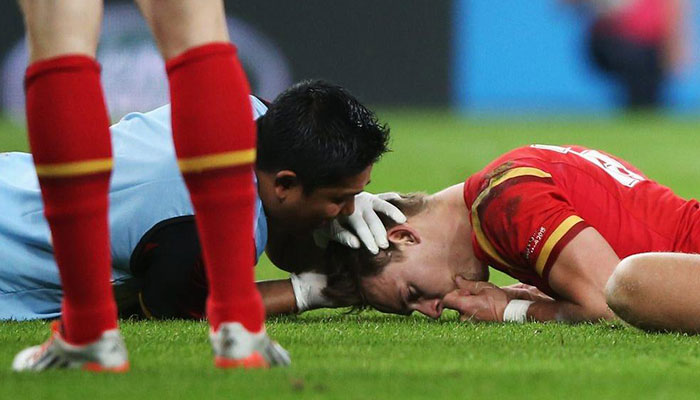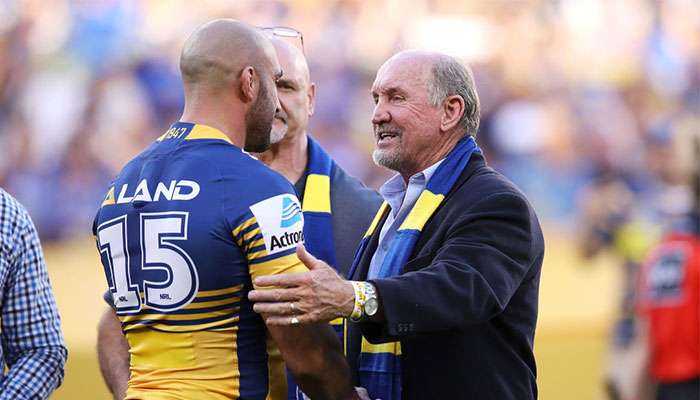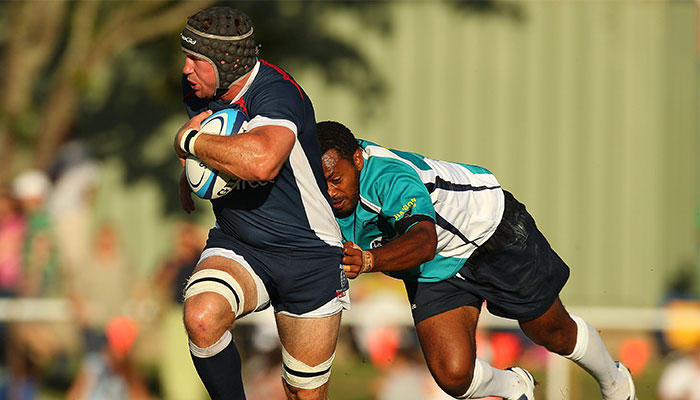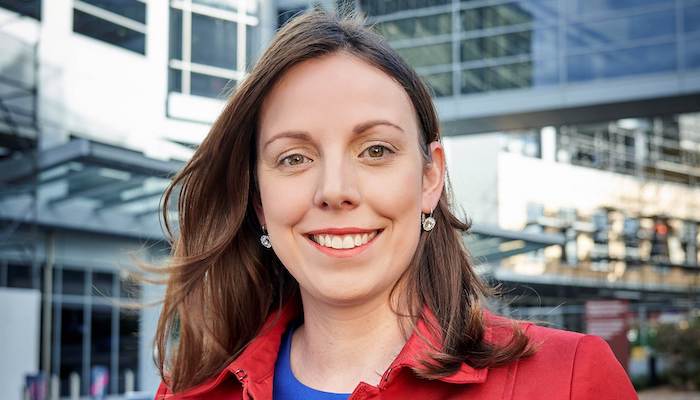Athletes in many contact sports are expected to take hard knocks in their stride; but repeated blows to the head are increasingly being linked to the progressive brain disease Chronic Traumatic Encephalopathy (CTE).

Danger: a new national study has identified a form of dementia in athletes that is linked to a progressive brain disease caused by repeated concussion. Image: Getty images.
Macquarie University cognitive neurologist Dr Rowena Mobbs has identified a syndrome of dementia in Australian athletes which could indicate CTE – a disease that can only be diagnosed after death, via a brain autopsy.
She has co-authored a groundbreaking national study following more than 120 patients with a long-standing history of concussion and who may be at risk of CTE. The research is currently awaiting publication.
"This research is the first to identify a syndrome of decline and dementia that's consistent with traumatic encephalopathy in Australian athletes," says Mobbs.
"It is nation-leading work with one of the largest cohort of patients affected."
Everyone knows about it in America - particularly NFL players ... It would be very naïve to think that a rugby brain or an NRL brain is going to be different to that of an NFL player.
She says the early indications show these patients have impaired learning called episodic memory, irritability, anger, and they are unable to regulate behaviours such as aggression.
While CTE can't be confirmed until after death, she says it's likely at least some of those studied will be shown to have the condition.
"We are providing assessment of their baselines and tracking their brain performance over time," she says.
Help for today
While research is useful for diagnosis and potentially for future prevention, Mobbs says that treatment programs can help people suffering from the condition now. Her work with people with concussion, dementia and suspected CTE means she often works with former athletes such as footballers and boxers – but patients who have had repeated blows to the head from causes other than sport are also at risk.
Psychological trauma common in survivors of violence, including domestic violence, can include post-traumatic stress disorder, which can compound the physical symptoms of brain injury.
"Patients with brain injury – whatever the cause - need care for their symptoms of cognitive decline," she says.
Through her Macquarie University clinic, Dr Mobbs is working with a team of specialists in dementia, including neuropsychologists, occupational and physiotherapists, physios, ophthalmologists and psychologists to offer expert integrated care and support.
Treatment can include support and counselling, environmental changes and sometimes medication to address issues with memory, mood or pain.
Denial and lack of insight are often part of the disease, but treating the symptoms can make life easier for both patients and their families.

Memory loss: Former Parramatta footballer Ray Price says he received frequent blows to the head during his career and is now on medication to ease forgetfullness.
"Sometimes I think they make mountains out of molehills, I just forget things – like where I put my keys," says retired footballer Ray Price who has represented Australia in both rugby union and rugby league.
He copped frequent knocks to the head as a player, and family members encouraged him to get help with ongoing issues including memory loss.
"They've given me a lot of tablets, and that's helped me with cohesion and not forgetting things so much, which can get frustrating," he says.
Family workshops bring relief
One of the most challenging consequences of brain injury from multiple concussions can be the impact on family members, particularly during bouts of rage or confusion.
Dr Mobbs says family members are usually the first to notice behavioural change. "Though many patients are aware there is something wrong, they are not fully aware of the degree of change noticed by their families," she says.
Dr Mobbs has established a pilot for an in-depth brain injury support group called Concussion Connect, bringing patients and their families together with others to share experiences and lessen any sense of isolation.
"It's almost a relief to know that other people are experiencing the same things that I am," admitted Laura Sheehan, who attended with her husband, former Wallabies rugby union player Brett Sheehan. "It's been such an isolated experience up until now."
Frances Lipman – whose husband Michael played rugby union for England – says that connecting with other suspected CTE sufferers in the group has been helpful.

Crippling migraines: England rugby player Michael Lipman, pictured, found little awareness of CTE when he sought help for severe headaches, according to wife Frances.
"We are learning more and more about CTE," she says. "We didn't realise before that it's another form of dementia. Knowledge means you can be prepared."
She says Michael saw specialists five years ago for crippling migraines, which should have tipped off his doctors, but there's little awareness of CTE in Australia.
"Everyone knows about it in America - particularly NFL players," she said. "It would be very naïve to think that a rugby brain or an NRL brain is going to be different to that of an NFL player."
Next steps
The study lays the groundwork for further research, to assess sporting risk for various codes in Australia and recommend protocols to reduce traumatic brain injury.

On a mission: former elite athlete and Macquarie neurologist Dr Rowena Mobbs wants sport to support concussion research.
Dr Mobbs – herself a former Australian athlete in pentathalon and fencing, and state representative in hockey, triathalon and cross country – says sporting bodies need to make a greater effort to support concussion research.
"We require more funding to identify as quickly as possible who will get CTE and who won't, and find ways to manage or prevent CTE," she says.
"While it can be contentious, it's important to address the issue scientifically and quickly to provide parents and sporting organisations more certainty going forward."
Dr Rowena Mobbs is a neurologist and senior lecturer , Department of Clinical Medicine, Macquarie University.






